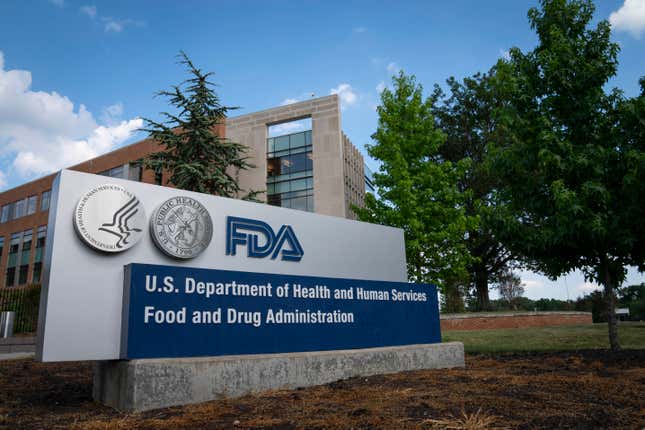
The Food and Drug Administration decided to not recommend the use of the party drug MDMA, also known as ecstasy or molly, to treat post-traumatic stress disorder (PTSD) on Tuesday.
The agency’s Psychopharmacologic Drugs Advisory Committee was set to review a new drug application from the public benefit company Lykos Therapeutics for its MDMA capsules to be used, alongside therapy, to treat PTSD.
The committee, which is composed of independent experts, met with Lykos representatives to review and discuss results from numerous studies, including two late-stage clinical trials by Lykos on the safety and efficacy of its MDMA-assisted therapy.
By the end of the day-long session — which was streamed online — the committee made a non-binding vote on whether the data demonstrated that the treatment is effective and outweighs any risks to patients, but ultimately took issue with the data and the clinical trial processes.
“In addition to being the first FDA advisory committee meeting to review a potential new PTSD treatment in 25 years, this will be the first MDMA-assisted therapy and psychedelic-assisted therapy to be reviewed by an FDA advisory committee,” Lykos CEO Amy Emerson told Quartz in an email before the decision.
Read more: The FDA may approve psychedelics for treating PTSD. Here’s what to know
In Lykos’ clinical studies, patients were given MDMA capsules made by Lykos along with talk therapy in three eight-hour session, overseen by two specially-trained therapists. The sessions were spread about four weeks apart.
According to results from the latest trial, about 71% of participants who received MDMA-assisted therapy no longer met the criteria for PTSD after 18 weeks, compared with 48% of the patients who received a placebo.
On Friday, the FDA gave the first hint of its thinking in briefing papers posted online ahead of Tuesday’s meeting. In the documents, FDA scientists said that based on the clinical trial data, “participants appear to experience rapid, clinically meaningful, durable improvement in their PTSD symptoms.” Still, they added that the data was “challenging to interpret” due to the nature of the treatment.
Because MDMA produces alterations in mood and cognition, patients know if they received the treatment or a placebo, making it nearly impossible to carry out a double-blind study.
Emerson told Quartz that the studies were designed in collaboration with the FDA.
“Given the novel nature of midomafetamine (MDMA) treatment, Lykos has consistently sought and received feedback from the FDA throughout the development program,” Emerson said.
The FDA is expected to make a final decision by August.
The future of psychoplastogens for treating mental disorders
MDMA belongs to a class of medications known as psychoplastogens. These compounds have been found to physically rebuild critical neurons in the brain, according to David Olson, director of the University of California-Davis Institute for Psychedelics and Neurotherapeutics.
Olson said that these medications produce effects that are rapid and sustainable.
“They last long after the drug has been cleared from the body, and that is a paradigm shift in how the field thinks about treating neuropsychiatric disorders,” Olsen said.
He added that the drugs can help treat the underlying causes of these illnesses and not just the symptoms.
In 2019, the FDA approved a nasal spray containing a variation of ketamine, another psychoplastogen, for treatment-resistant depression.
Olson said that even if the FDA fails to approve Lykos’s application, interest in using psychedelics to treat mental disorders will continue.
He said there are already other companies working on developing psychoplastogens that have been stripped of the psychoactive properties that make them a liability in clinical trials.